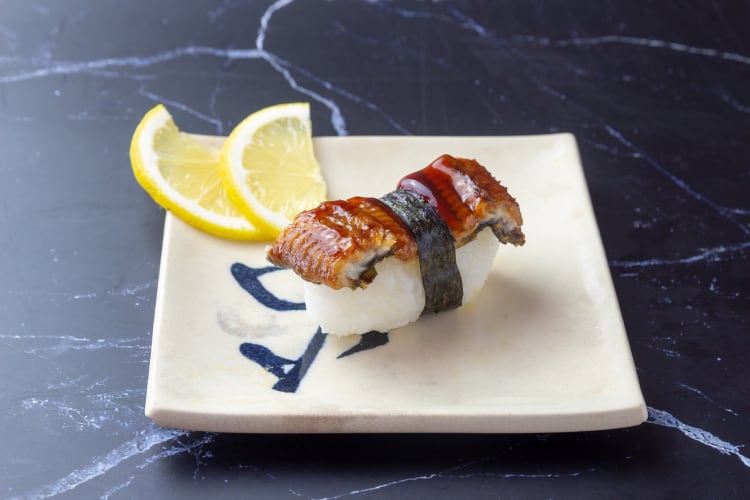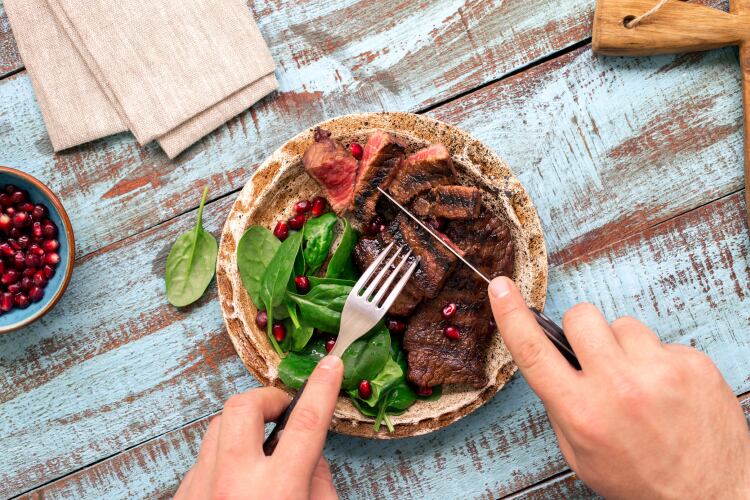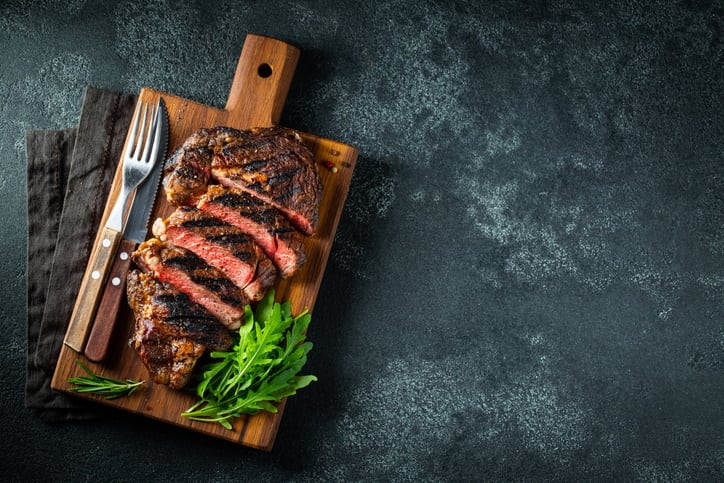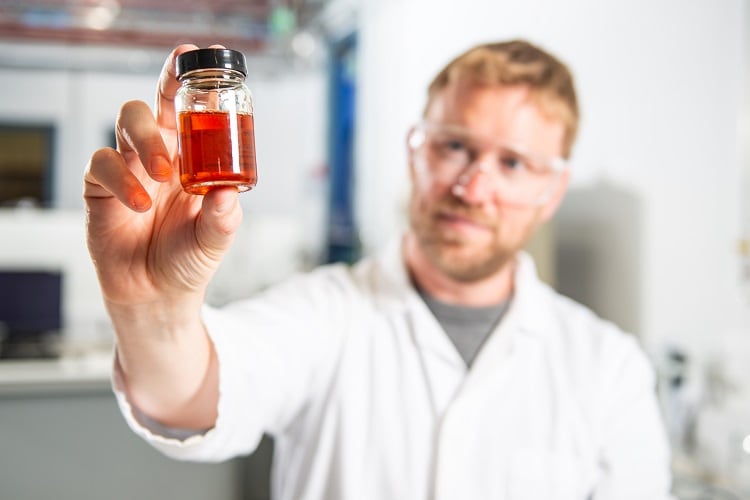Previously used in developmental biology and medical research, organoids are stem cell-derived three-dimensional tissue structures.
When used in cell-cultured seafood products these tiny, self-organized 3D tissue cultures can grow as three-dimensional structures in the same manner they would grow in a living animal. By creating the ‘ideal environment’ for the organoids to grow, Forsea Foods - a start-up focusing on seafood development - is able to get the fish cells to ‘spontaneously’ form their natural composition of native fat and muscle.
The approach, developed by Forsea co-founder Dr Iftach Nachman, is distinct from how most other cellular agriculture innovators grow animal cells in bioreactors. Generally, once a cell line has been selected, these cells divide rapidly to create large quantities of cells, a process known as proliferation, before they are moved to a new environment and triggered to differentiate into a mature cell type such as fat or muscle via changes in scaffolding, medium composition, or both.
Forsea Foods’ technology offers two distinct advantages. You don’t need as much growth medium and you don’t need scaffolding for the different cells to interact in a 3D environment.
“While cell cultivation largely focuses on a system of directed differentiation, where cells are signalled to differentiate into a specific cell type and are then combined on a scaffold, our system grows the aggregate of the various cells already at the initial stage of the process. The cells organize themselves autonomously into their innate, purposed structure, just as in nature,” explained Nachman, a principal investigator at Tel Aviv University.
“The common practice at cultivated meat companies includes the usage scaffolds in order to provide the different cells (muscle, fat, muscle fibres, etc), which were grown in different bioreactors, the ability to interact on a 3D environment and then mature altogether as a mini-tissue,” elaborated co-founder and CEO Roee Nir Later. “When one wants to produce a whole cut, due to the lack of vascular system, there is a need of another spacing or scaffolding system to allow the transport of ingredients and waste to/from the cells. Forsea’s technology eliminates the first scaffolding stage described above. We are currently investigating the next stage and hope to reach some results soon,” he told FoodNavigator.
“[This] is a highly scalable platform that bypasses the scaffolding stage and requires fewer bioreactors. This makes the process much simpler and more cost-effective. Additionally, it dramatically reduces the amount of costly growth factors needed.”
Because Forsea Foods doesn’t use directed differentiation techniques, it is able reduce the amount of growth medium – a major input expense for cellular ag companies – that is required. “We provide our organoids external signalling and the right media components to produce most of the growth factors themselves. The cells that grow inside the organoids use the nutrition we provide them to synthesize the growth factors – just like in nature. For certain growth factors – very expensive ones – we have found that we can save up to 90% of their usage,” Nir detailed.
According to Forsea, the result is nutritionally identical cultured seafood products that ‘embody the same taste and textural traits as their ocean-caught counterparts’ – but without risk of contamination from pollutants such as mercury, industrial chemicals, and microplastics.
Moving to market with freshwater eels
Forsea Foods was formed last October. Nurtured by the Israeli start-up incubator The Kitchen FoodTech Hub, it received an initial injection of capital support from the Israeli Innovation Authority (IIA) and the Strauss-Group.
The company is now preparing to bring its first products to market.
Forsea’s technology can be used to create ‘any type of seafood and fish as well as to beef, pork or chicken’, we were told. However, the Israeli start-up's initial focus will be on seafood and the company plans to launch with freshwater eels.
“Eels are a much sought-after delicacy, especially in East Asia. Yet overfishing in the past decades has rendered them an endangered species. The Japanese eel population alone has declined by 90-95%, which has driven prices to astronomical levels. Eel meat sells in Japan for up to US$70 per kilogram,” Nir explained.
The combination of market and conservation opportunity made eels an appealing target for Forsea’s first commercial product.
“They are considered to be the ocean’s most mysterious creatures, undergoing an unusual metamorphosis,” Nir reflected.
Unable to breed in captivity, raising eels for food is highly complex. They live most of their lives in sweet water and, when ready to procreate, will swim 7,000 km into the deep ocean to either of two meeting points: the Sargasso Sea, near the Bermuda Triangle, or off Guam. And once they breed, they die. What returns with the help of the ocean’s currents are two-gram sized baby eels. These are fished and raised in controlled pools where, over the course of a year and a half, they turn into 250g adults.
“The market demand for eels is enormous. In 2000, the Japanese consumed 160,000 metric tons. But due to overfishing and rising prices, consumption has dwindled to just 30,000 metric tons. There is a huge gap between the supply and the demand for eels which traditional aquafarming cannot accommodate. Compounding this problem, Europe has barred the export of any type of eel product,” Nir concluded.
Forsea plans to meet this need by partnering with local and global players for the marketing and distribution of its eel products.




